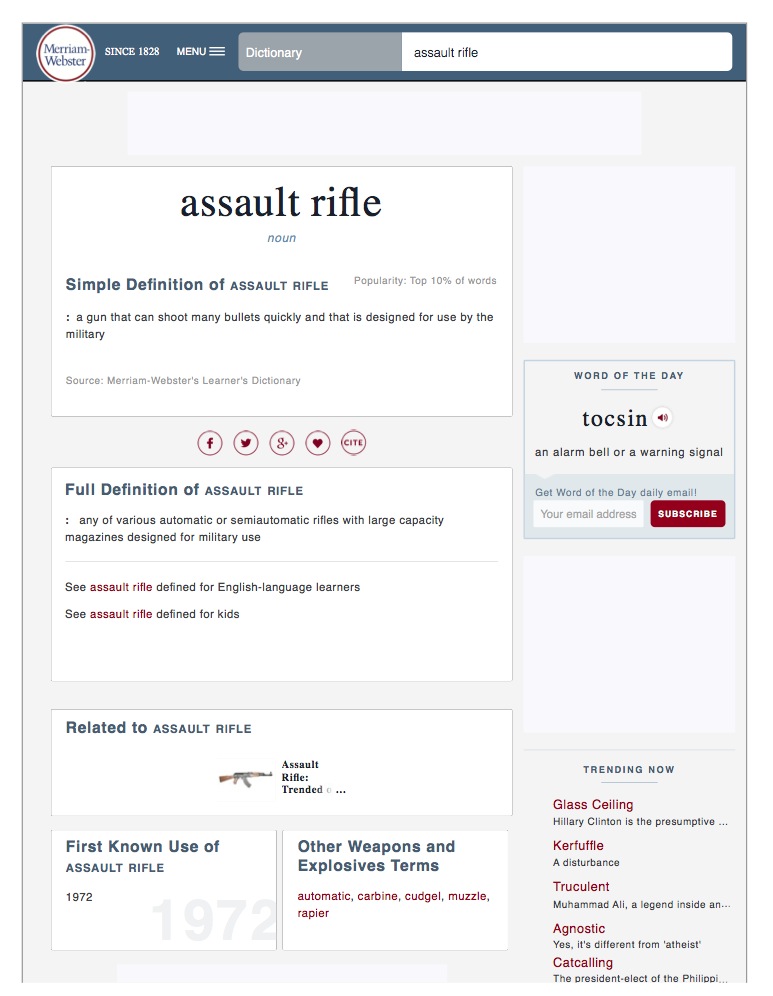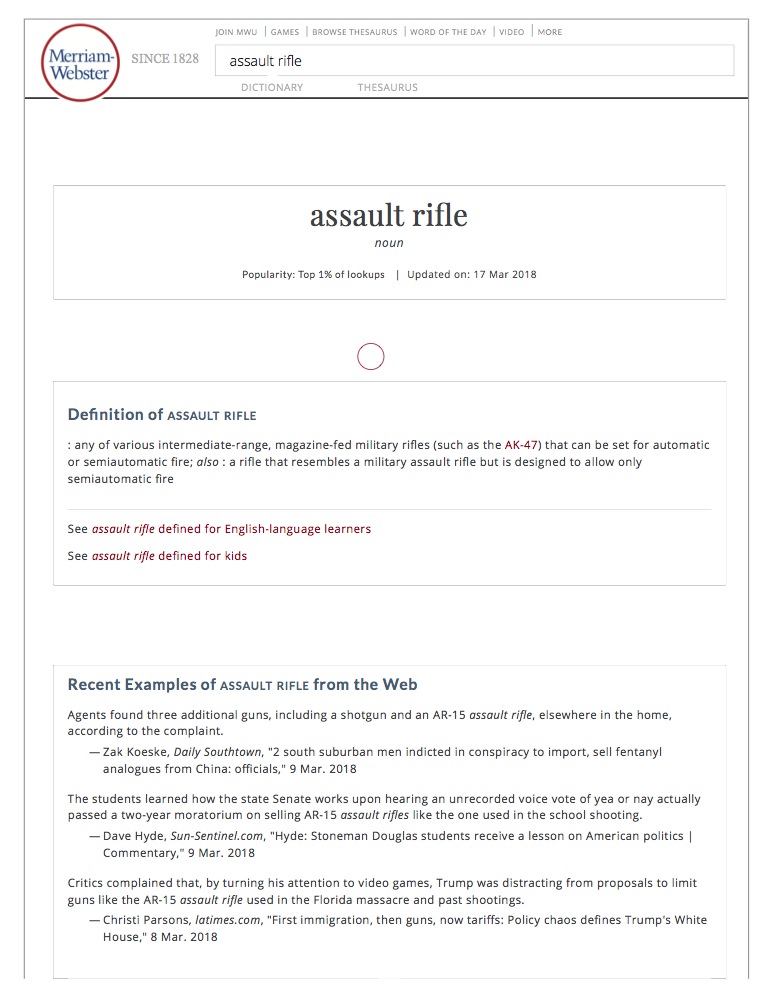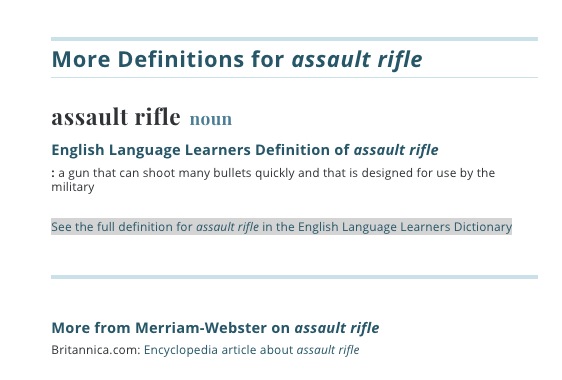Pg 2
Screenshot of a cached archived file from June 13, 2016:

The 2016 “simple” definition is the same 17 words used in the earlier “English-learners/kids definitions; the alleged “full” version is only 15, same as in 2013. The first use noted is still 1972. The content of links for English learners and kids remain the same as the earlier definition above. So there was a change in presentation but no changes in definitions.
Also, notice that on that date “assault rifle” was in the top 10% of word popularity on the site (apparently this statistic was not tracked in 2013). This archived capture occurred the day after the Pulse nightclub mass shooting in Orlando, FL.
The Parkland shootings occurred on February 14, 2018.
This archive capture shows the definition was changed—without explanation—on March 17th.

And here an archive from March 30, 2018 showing another presentation of the new definition:

The definition, excluding the AK-47 example and the “also” clause, is 18 words. Notice first use is now 1964, again with no explanation or citation as to why. I might suggest it was perhaps because in 1964 the AR-15, altered for the military with the ability for selective semi- or fully-automatic fire, designated as the M-16—a true assault rifle—went into general military distribution. The ‘also’ clause is alluding to the civilian versions of the AR-15 manufactured by several makers which, by law, was limited to being semi-automatic.
Notice also that the word popularity on March 17th was in the top 1%.
Did anything about that “also” clause seem strange to you? I was taught that defining a word using the word is circularity, a lexical no-no.
So now we have a definition by a self-proclaimed “most trusted” authority that defines something for what it resembles, not what it actually is.
Said authority defines “resemble” thusly:

But further down the same page, we see the return of the English learner’s definition—unchanged from previous years, still at 16-words; and a link to the earlier encyclopedic entry:

The longer, more detailed and nuanced encyclopedic entry is now just an obscure link near the bottom of this long page, an afterthought, easy to miss. Notice that definition is meant to be easier for those learning the language. Sounds like a nice idea. But notice that in making the definition allegedly easier for the new user of the language to learn, in effect, this dumbing-down has negated the more specific definition earlier on the page. Merriam-Webster, acting as an authority to be trusted, is teaching new users and students a definition contrary to the one they are now promoting as more “correct” in terms of general usage (which does not mean it is accurate). How are students or new users—or any users—benefited by having “simple” or “full” or “student” or “new learner” definitions that differ? What is being defined should be done with due specificity for what it actually is, not what it resembles, or any other dumbed-down nonsense.
Some may counter by saying that I’m splitting hairs, that “it’s all just semantics.” Of course, it is. Semantics is the branch or subfield of linguistics that deals with words and their meaning in a language. And that segues into the purpose of this post: How the meanings of words have been and continue to be, changed—usually incorrectly—then validated and codified as such, either formally in didactic dictionaries, or informally as in any of various pop-social lexicons, and why it matters.
Politicizing words is nothing new. That is called propaganda and has been going on since words were created. Weaponizing words is a different part of this discussion. The weaponizing of words occurs when meanings are changed for that purpose. Much has been written about the first two concerns, not much on the damage being done to our lexicon. That’s what I want to address.
[I have run out of time for today but have set the stage for the larger picture I will be developing in the near future. Be sure to come back and check for revisions. In the meantime, if you would like to read more on what I think of the art of writing dictionary definitions (and maybe a peek into where this is all headed…shhh!), and how Merriam-Webster, in particular, does it, see this previous post.]